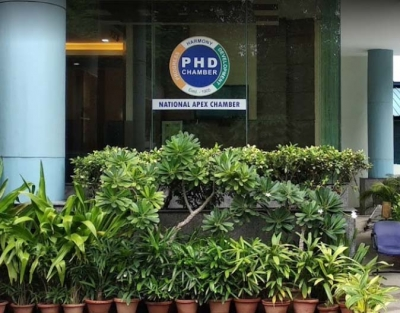
New Delhi, Oct 29 (IANS) Senior officials from the PHD Chamber of Commerce and Industry (PHDCCI) on Wednesday met Revenue Secretary Arvind Srivastava to present the industry’s recommendations on direct and indirect tax policies.
As part of the ongoing pre-budget consultations, the government has been holding a series of meetings with industry representatives to gather inputs for the upcoming Union Budget. The discussions are centred on enhancing the ease of doing business and extending tax benefits to the last mile.
Following the meeting, PHDCCI CEO and Secretary General, Dr Ranjit Mehta, said the discussions focused on both taxation and business facilitation.
“We also discussed ease of doing business, which is the government’s focus,” he noted, adding that the Chamber had shared specific suggestions to ease liquidity challenges faced by micro, small, and medium enterprises (MSMEs).
Srivastava described the government’s approach as “very positive” and encouraging for the industry.
PHDCCI’s former President, Saket Dalmia, pointed out that the implementation of new laws has been encountering challenges at the last mile. “The government has taken note of these issues and responded positively,” he said.
PHDCCI’s Indirect Tax Committee Chairman Ashok Batra described the meeting as “very constructive”, noting that officials listened carefully to the industry’s concerns, particularly regarding input tax credit.
Adding to the discussion, PHDCCI’s Tax Committee Chairman Mukul Bagla highlighted the need for a more progressive personal income tax structure.
“Despite the reduction in personal income tax rates in the last budget, tax collection has increased by 6.5 per cent so far this year,” he said.
“We have suggested extending the tax cuts further — proposing a 20 per cent tax rate on incomes up to Rs 30 lakh, 30 per cent on incomes up to Rs 50 lakh, and 50 per cent thereafter — so that the salaried class can benefit from economic growth,” he added.
The government is expected to continue engaging with various industry bodies in the coming weeks before finalising its proposals for the Union Budget.
–IANS
aps/vd



